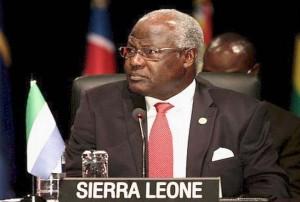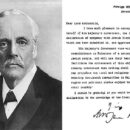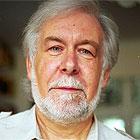Sierra Leone: elections are a chance to ride the wave of economic development and democracy – By Peter Penfold

On 17 November Sierra Leoneans will go to the polls in presidential, parliamentary and local elections. Over a decade ago, after years of turmoil and unrest, Sierra Leoneans were encouraged to embrace democracy as the means of restoring peace and reviving this once flourishing West African country. Great sacrifices were made for the cause of democracy – just by voting people ran the risk of having their hands and legs chopped off. It took the largest UN peace operation and the deployment of British troops to finally bring an end to the 11 year rebel war and usher in Sierra Leone’s democracy.
Now ten years on since President Kabbah declared “˜di wor don don’ (the war is over), this will be the third democratic election to take place since then – a notable achievement. At the previous elections in 2007, the APC party led by President Ernest Bai Koroma defeated the incumbent SLPP resulting in a peaceful democratic transfer of power – a rare event in Africa. This time around, ten political parties and 586 candidates will contest the 124 parliamentary seats; nine presidential candidates will vie for the top spot.
There are, however, still some shortcomings in Sierra Leone’s electoral process. For example, one would like to see a greater gender balance – at present women make up only 15 percent of the representation in parliament and only 38 are contesting this time; none of the presidential candidates are women (although four out of the nine Vice-presidential running mates are female).
There is also some concern that the polls will pass off peacefully. In May all the parties signed a pact to ensure peaceful elections but there have already been one or two incidents of violence around the country. A worrying feature generally of African politics is how the healthy cut and thrust of political differences debated in the capitals’ parliaments can be misinterpreted when they reach the rural areas. Africa’s political leaders could do much more to quell the enthusiasm for turning political differences into violence.
The politics of Sierra Leone remain entrenched in a north/south, APC/SLPP divide. But this is no different from many other established democracies? For example, the recent US election, where the outcome was determined by just a few thousand votes in key “˜swing states’ such as Ohio and Florida, again showed entrenched divisions between black and white, between middle America and the east and west coast states.
The biggest difference between the democracies of, for example, the US or UK and places like Sierra Leone and other parts of Africa is that in Africa the winner really does take all and the loser is a real loser. Once the outcome is determined, it is the winning team that gets all the prizes, they grab all the positions of power and influence, their business supporters get all the contracts, and the winning areas receive all the development and investment. The losers often sink into oblivion. If Sierra Leone is really to prosper, whoever emerges as winner on 17 November must put an end to this practice. If all Sierra Leoneans are truly to benefit from their embrace of democracy, they deserve more than just the opportunity of being able to vote in free and fair elections every five years. They will want to see a real change in their impoverished daily lives.
When newly independent Sierra Leone emerged in 1961 she was richer than other emerging independent countries like Singapore and Malaysia. Through instability, corruption and mismanagement, she slipped backwards so that by the time I was the British High Commissioner in 1998 she was officially the poorest country in the world. Even after the past ten years of peace and democracy she is still only ranked 180 out of 187 in the UN’s Humanitarian Development Index.
Sierra Leone’s once thriving development was based upon several factors such as a sound infrastructure, a good education system and successful agricultural and forestry sectors. Over the past fifty years these have all been eroded. The roads have disintegrated, the railway has been torn up, constant electricity and water supplies are luxuries. In an education system which was once feted as the “˜Athens of Africa’, educational standards have dropped and illiteracy is high. The country no longer feeds itself; rice, once a profitable export, now has to be imported. The dense mahogany forests have been decimated; the rich fishing waters continue to be plundered by illegal overseas trawlers. Regrettably the mineral wealth of the country, instead of supplementing the economic development has detracted from it. The diamonds became a curse, contributing only to the corruption and adding little or nothing to the overall economic growth; instead they fuelled the fighting and instability.
In recent years the mining sector has attracted a great deal of interest from outside investors. At one time the highly profitable Sierra Rutile mine was contributing nearly 60 percent of all government revenue. Firms like African Minerals and London Mining have now embarked upon huge developments in the bauxite and iron ore industry. Even more noteworthy, significant deposits of oil have now been discovered leading to hopeful anticipation that Sierra Leone can join her African neighbours in becoming a major oil producer in the next decade. The incoming government will need to ensure that the mining sector really does benefit the people and the overall economy of the country and not just the firms involved and a few other individuals.
This month’s election comes at an opportune time. In the midst of a world-wide economic recession, there is a growing interest in Africa. In the past decade, six of the ten fastest growing economies have been in Africa. Last year neighbouring Ghana, which will also hold elections next month, boasted a staggering 13 percent growth and the IMF is currently predicting 6 percent overall growth in sub Saharan Africa, compared to just around 1 percent in Europe. As the noted financier and investor, George Soros, has said: “˜Africa is one of the bright spots on the gloomy economic horizon.’
Whoever emerges from Sierra Leone’s election therefore will need to take advantage of this enthusiasm to invest in and trade with Africa. But much needs to be done to improve the basic infrastructure and to create employment, especially for the young. Youth unemployment is currently at 60 percent and many observers recall that it was the disaffected unemployed youth who became the driving force for the years of the rebel war turmoil.
During his current term of office President Koroma has made efforts to improve the infrastructure. Roads have been built, electrical power has improved. Notwithstanding divisions within his APC party, he remains popular in the country and has quickly established himself as a respected leader in the region and on the international stage. The rival SLPP party, led by the former military head of state, Julius Maada Bio, is even more divided and faces an uphill task if it is to break into the APC strongholds in the northern and western areas, which account for over 60 percent of the two and a half million votes available. Of course, some of the other parties contesting the election, such as Charles Margai’s PMDC, can affect the overall vote, but even parts of the SLPP’s traditional stronghold in the south are under threat.
If, as currently predicted, Ernest Koroma does win the election, his efforts to develop the prosperity of the nation will continue to be hampered by the continuing corruption. Even his Vice President, Sam Sumana, has faced accusations of corruption, which led to many believing that he would be replaced for the forthcoming election. But Koroma has decided to stick with him – better the devil you know?
Possibly the biggest threat facing the incoming government might be the threat from drugs allied to the massive youth unemployment. West African countries are being targeted by the South American drugs cartels as transit stops on the way to Europe and the US. Sierra Leone is undoubtedly one of the targets as evidenced by recent seizures, and we have already witnessed Guinea Bissau being totally undermined by the drugs problem. If, as one hopes, democracy has firmly taken root in Sierra Leone and the disaffected youth no longer consider taking up AK47s and going into the bush a viable option, they may well increasingly turn to the drugs trade to fill the gap left by no alternative means of profitable employment.
The winner of next week’s election, whoever it is, will have much to ponder.
Peter Penfold is former British High Commissioner to Sierra Leone.







[…] Penfold is former British High Commissioner to Sierra  Leone. African Arguments Share this:ShareTwitterFacebookLike this:LikeBe the first to like this. This entry was posted in […]
Nice article, thanks. But now there are only eight presidential candidates, as the United Democratic Movement’s candidate pulled out from the race last week, reportedly to support Koroma. Cheers.